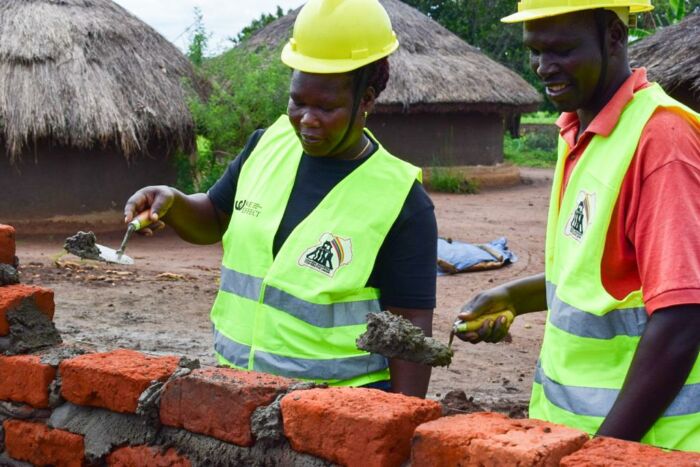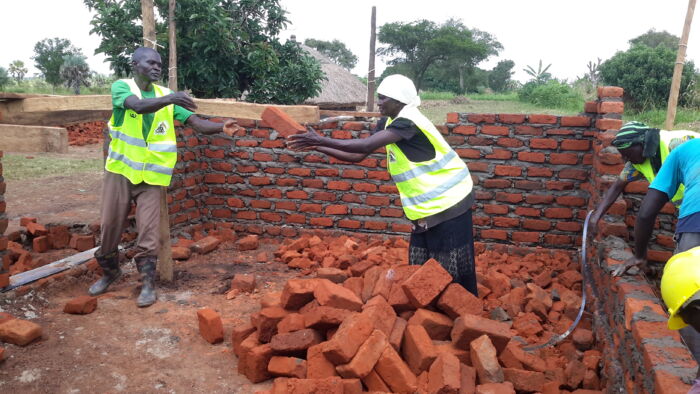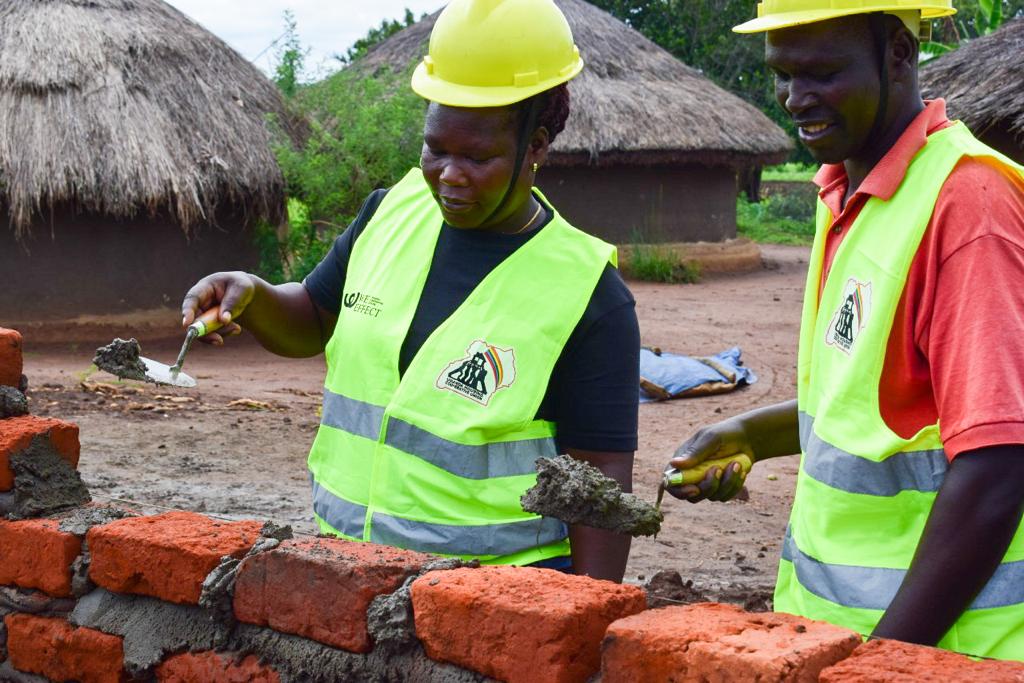The UN-Habitat’s World Cities Report, states that between 119 and 124 million people and between 143 and 163 million people were affected in 2020 and 2021 respectively. This indicates that many fell into poverty on account of the pandemic thus qualifying urban poverty and inequality as an urgent global priority for immediate handling.
Despite the above noted inequalities, housing cooperatives in Uganda, especially those in rural areas, concentrate on the production and collection of building raw materials. This includes collection and piling of lake and plaster sand near construction sites, brick making, and participation in farming for housing.
This was the situation in the housing construction activities in Awach Improved Housing Cooperative Society, where Ajok Rose, with the support of family and housing cooperative members, worked together to build a permanent adequate house to improve the family housing condition.
The housing cooperatives model requires communities to collectively save and buy land and finally build their houses together. This is why low-income earners in rural and urban areas come together to access adequate and affordable houses.
Ajok Rose is a member of the Awach Improved Housing Cooperative Society in Uganda. She is married and a mother of three children (two girls and one boy). A hard-working mother with land endowed with sand, Rose’s source of income includes two pigs, twenty-one goats, thirteen cows, poultry keeping. She has also diversified into cassava, soya bean, maize and ground nut farming.

In 2020 during Uganda’s first lockdown, she worked with her husband and their children to make 15,000 burnt bricks and also excavate and deliver sand to her home, which was next to her future construction site.
Despite the inequalities and vulnerabilities that were exacerbated by the triple ‘C’ crises – COVID-19, climate, and conflict, Rose, together with her family members, managed to harvest and sell their farm produce which included beans, ground nuts, sunflower, and soya beans. The proceeds helped her buy 54 bags of cement and other building materials which were not within her reach.At the time of her construction, she sought a loan of UGX 3,000,000/= (SEK8653) from the housing cooperative development fund managed by Uganda Housing Cooperative Union (UHOCU) to top-up her savings. She also sought support from her fellow cooperative members in the form of labour during construction which was done on gyratory basis, as she stated.
Ajok Rose, is a member of Awach Improved Primary Housing Cooperative Society (PHCS), cooperator number 02, and a member of the supervisory committee. ” When I got married to my husband, I found him with a big chunk of land, which was mainly bushes. We both agreed to work harder by planting various seasonal crops, including beans, sunflower, maize, soya beans, sesame seeds, millet, and ground nuts”, explains Rose. After the first harvest, I wanted to construct my permanent house to move from the temporary grass-thatched hut. I noticed the money we had earned from the harvested produce was not enough to start construction. I later joined a village savings group in Awach to get a loan and start constructing.
After six months of my membership saving with the village savings group, Uganda Housing Cooperative Union (UHOCU) introduced the housing cooperative concept to our village savings group. Our group members viewed it as a viable approach to address the issue of access to adequate housing. In 2016, our village savings group formed a housing cooperative society in the name of Awach Improved Housing Cooperative Society. Members agreed to have a monthly target saving. In 2019, after three years of saving with my cooperative society, the Union conducted a house dreaming meeting to develop housing plans.
In 2020, a year immersed in Covid-19 challenges, UHOCU conducted an assessment to establish the number of members who were ready to start building. This was done by identifying those with building raw materials and 10 out of 34 members were identified. “In 2020, the Union conducted a profile of the ten identified members and advised us to use the lockdown period to meet the required quantities, which would enable us to prepare for the house construction.”

In 2021, the Union introduced us to the housing cooperative development fund accessed at eleven percent interest. This was to help cushion us from the effects of inequalities and vulnerabilities exacerbated by the triple ‘C’ crises – COVID-19, climate, and conflict. I asked the Union to give me a loan of UGX 3,000,000/= (SEK8653) and on September 2021, I had the groundbreaking for my two-roomed house. In the course of construction, my fellow members helped me move the building materials like bricks and mixed sand closer to those putting up the house.
Some members participated in building and digging holes as instructed by the site engineer. The first phase of construction took seven days instead of twelve days. All this was attributed to the principle of cooperatives, where members extended their support towards my building activities.
I would like to thank the Union and We Effect for starting the housing cooperative development fund, which gave me the motivation to manage my housing construction costs. Now that my house is roofed with support from the loan, I look forward to fixing doors and windows so that by the end of 2022, my family and I can occupy the house.
